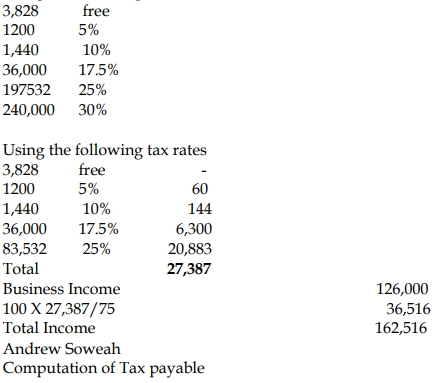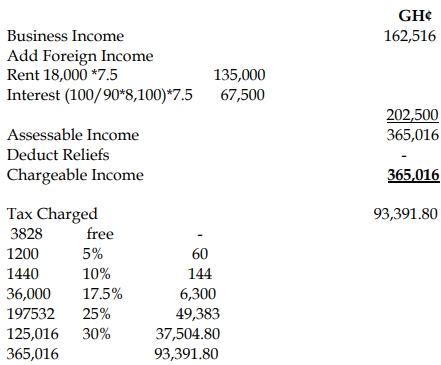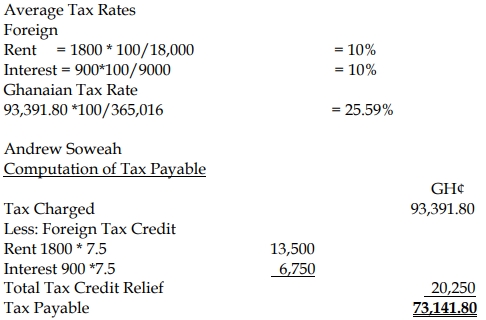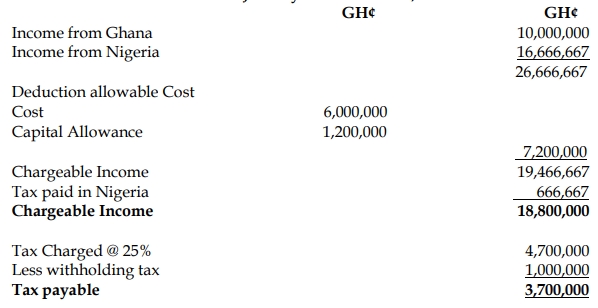- 5 Marks
Question
The Government of Ghana recently signed a Double Taxation Avoidance agreement (DTA) with the government of Mauritius at Port Louis, Mauritius.
Speaking at a joint press conference after the signing ceremony, Ghana’s Vice President, Alhaji Dr. Bawumia, said:
“We have seen the manifestation of the first fruits of this Joint Permanent Commission with the signing of the historic double taxation agreement between Ghana and Mauritius, …, and we believe this is just the beginning of our cooperation.”
Required:
Discuss FIVE benefits likely to result from the Double Taxation Agreement.
(5 marks)
Answer
The benefits of the Double Taxation Agreement (DTA) are as follows:
- Encourages Trade and Investment: A DTA creates an environment of fiscal certainty, which encourages trade and investments between the contracting states.
- Prevents Double Taxation: It ensures that businesses and individuals are not taxed twice on the same income, reducing the overall tax burden.
- Administrative Cooperation: It provides mechanisms for cooperation between the tax authorities of both countries, improving tax enforcement and compliance.
- Prevents Tax Evasion: The agreement facilitates the exchange of information between the two countries, helping to prevent tax evasion and avoidance.
- Non-Discriminatory Treatment: It helps prevent discriminatory taxation of foreign nationals and enterprises, fostering equal treatment under tax laws.
(5 marks)
- Tags: Double Taxation, International trade, Tax Treaty
- Level: Level 3
- Topic: International taxation
- Series: MAY 2018
- Uploader: Cheoli




